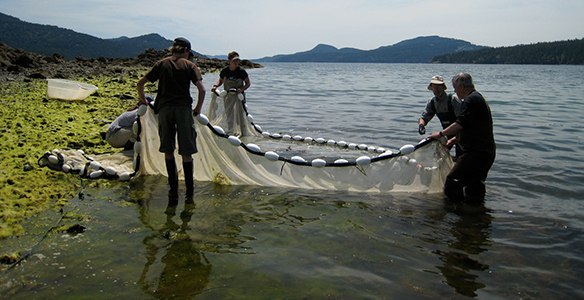||| FROM MICHAEL JOHNSON |||
Anecdotal evidence tells us that there is, once again, a rising number of Covid cases spreading throughout our island communities at this very moment in time. But, as we no longer track the numbers we’re unable to determine to what extent this may pose a current or future threat to both our residents and our visitors, or to measure the resultant loss of productivity throughout the county. Without these numbers we lack crucial information that would be helpful in determining the best course of action in protecting our health and welfare. Aye, there is no warning cry telling us to take precautions, telling us that our communities are, once again, being threatened, and neither is there any resultant plan of action being taken that might mitigate the outcome. In a sense one could say, “because there are no numbers, there is no problem.” This is not unlike areas within our political spectrum today where the numbers simply don’t exist, areas where we continue operating in the dark while also continuing to craft guiding policies without having much of the critical information that’s relative to the problems of the day.
As our local elected leaders continue to make decisions that are relevant to our daily lives based solely on our economic welfare, they do so at the expense of the common good. Identifying the social indices relative to our common good is not one of those “Wicked problems” that has no solution, likewise, these are not areas of concern that are impossible to quantify. Indeed, these are areas relative to social well-being everywhere that have been studied extensively for many years. The results of the academic research that has been performed over the past two decades is readily available to the general public, and is research that provides us with an incredible amount of information regarding how other countries and other communities are now coming to terms in dealing with the societal problems relative to their residents quality of life.
The internet is a wonderful tool. Aye, one can type in subjects such as “quality of life,” or “social indices,” and get millions of responses at the tip of their fingers in only a matter of seconds. And though one could spend a lifetime studying the research relative to these areas of concern in our societies today, it’s easy to note that there are some commonly accepted universal components that have resulted from this research that are now accepted as fact, and are being used in an effort to create baseline measurements regarding quality of life issues throughout society today.
For example, the European online publication “Euronet” recently published the results of their academic research in a publication titled, “Quality of life indicators – measuring quality of life.” This is a long-term academic study performed on the European Union of countries that presents, “a detailed analysis of many different dimensions of quality of life, complementing the indicator traditionally used as the measure of economic and social development, gross domestic product (GDP).”
The study states that, “While GDP is very useful for measuring market production and providing an indicative snapshot of an economy at a given time, it does not provide a comprehensive picture of how well-off the citizens of society are.” The study goes on to explain why there’s a need for measuring beyond “economy,” and it lists the essential criteria, “the 8 + 1 dimensions of quality of life” that make it possible to create the framework for measuring “quality of life,” and to also develop baseline indicators for measuring “sustainability,” and “well-being.”
The 8+1 dimensions of quality of life–
- Material living conditions (income, consumption and material conditions)
- Leisure and social interactions
- Economic security and physical safety
- Governance and basic rights
- Natural and living environment
- Overall experience of life.
How does this affect us today? We continue to talk as if our economy is an equal partner to our environment and to our social welfare, while at the same time being obvious that SJC is continuing to create policies that will be guiding us into the future primarily based on economy. Our elected leaders simply do not have all of the tools in the box that are necessary to create a baseline inventory relevant to the measurement of the future overall health and welfare of our island communities.
I say we put the adoption of the SJC Destination Management Plan on indefinite hold until we come up with the all the tools necessary to adequately measure our island community’s quality of life, and that based on this information we then reprogram our guiding policies accordingly. I feel that it’s incumbent upon ourselves to do so in an effort to live up to the tenets of our county’s vision statement, and that by not doing so it remains evident that the problems we will continue to have going into the future are not incurable… no, they simply remain problems that are the result of policy by choice. The people deserve better.









How may I reach you?
Thanks Thom, Please check your FB messages.